|
When I was a kid, I got caught up in a fantastic conspiracy theory – that Paul McCartney was dead. It was quite the thing back in the day. Allegedly, McCartney had been killed in a car accident and had been replaced by a body double. Furthermore, there were “clues” about his death in several of the Beatles’ songs. If you played Revolution 9 backwards, you could allegedly hear the words “Turn me on, dead man.” I remember spinning the record backwards and … well, I’m not sure I heard anything. But still the myth continued. Ringo Starr, interviewed at the time, shrugged his shoulders and said: “If people are gonna believe it, they’re
gonna believe it. I can only say it’s not true.” As you know, Paul, now 78, is still very much alive and Ringo’s words are more relevant than ever.
One of the most distressing developments of this year’s U.S. presidential election is how conspiracy theories have become a campaign issue. The Conversation Canada has published several stories by Marc-André Argentino of Concordia University, who researches how extremist organizations create propaganda and impact democratic institutions. Marc-André was one of the first people to write extensively about QAnon, an ever-expanding conspiracy theory believed by many of Donald Trump’s core supporters. Trump himself has promoted some of the QAnon nonsense on his Twitter account and most Republicans are reluctant to dismiss the conspiracies for fear of alienating voters.
As a faithful reader of The Conversation, you’re a discerning consumer of evidence-based news and information – and therefore not the target of those who promote conspiracy theories. But maybe, like me, you’re fascinated – and a bit worried – about the rise and impact of this disinformation. What drives people to believe in wild theories? Where do they come from? For your weekend reading pleasure, I’ve assembled some insightful articles from the global network of The Conversation that explain this phenomenon.
Have a great weekend and we'll be back in your Inbox on Monday.
|
Conspiracy Theories Explained
|
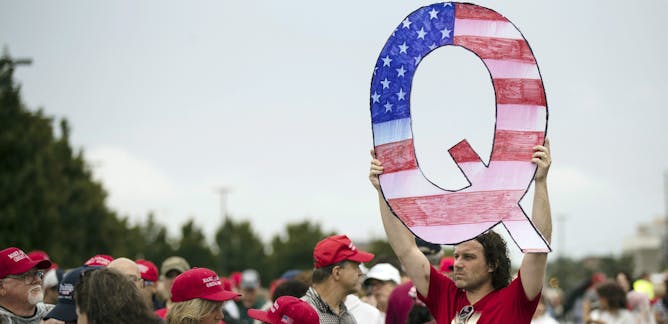
Marc-André Argentino, Concordia University
QAnon refers to the online community that believes in conspiracy theories about Donald Trump and the so-called deep state, and is spreading harmful misinformation about COVID-19.
| |
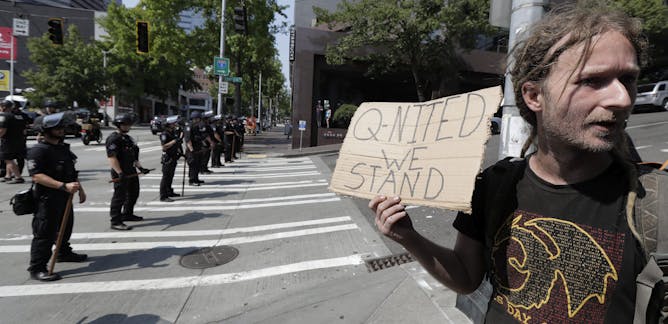
Marc-André Argentino, Concordia University
Believers of QAnon fringe conspiracy theories have moved into the mainstream political arena, including several who will be running as Republican candidates in the U.S. elections this fall.
|
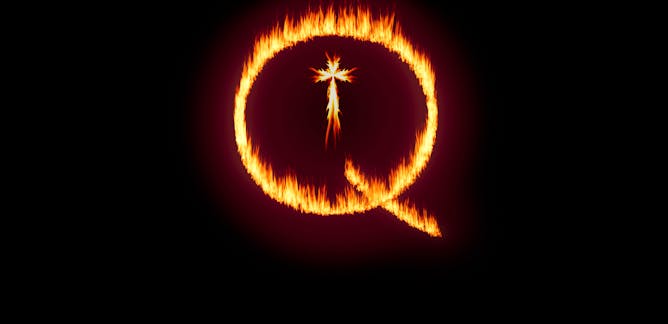
Marc-André Argentino, Concordia University
The QAnon movement that's based on conspiracy theories is now being used by some charismatic Christians as a way to interpret the Bible. It's a dangerous mix of religion and false information.
| |
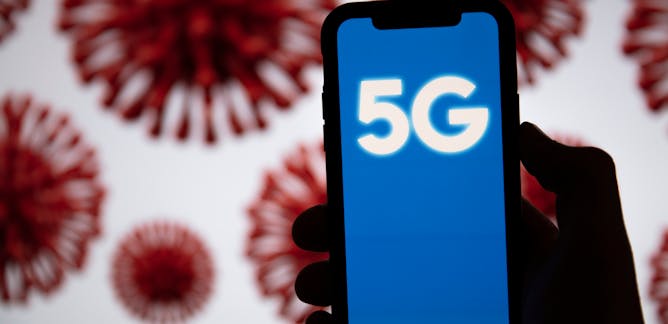
Wasim Ahmed, Newcastle University; Joseph Downing, London School of Economics and Political Science; Marc Tuters, University of Amsterdam; Peter Knight, University of Manchester
Conspiracy theories about mobile phone technology have been circulating since the 1990s and the imagined potential of radio waves to remote control a population.
|
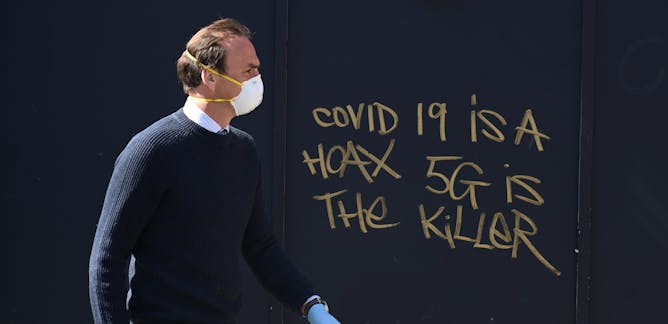
Jaron Harambam, KU Leuven
Don't jump to conclusions about 5G conspiracy theories or those that believe in them.
| |
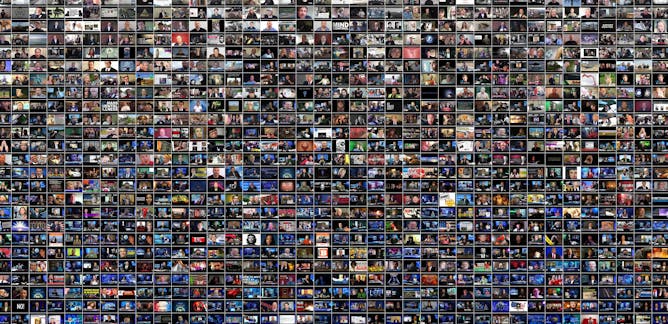
Marc Tuters, University of Amsterdam
Researchers have been able to track how radical communities on the fringes of the web essentially manufacture conspiracy theories.
|
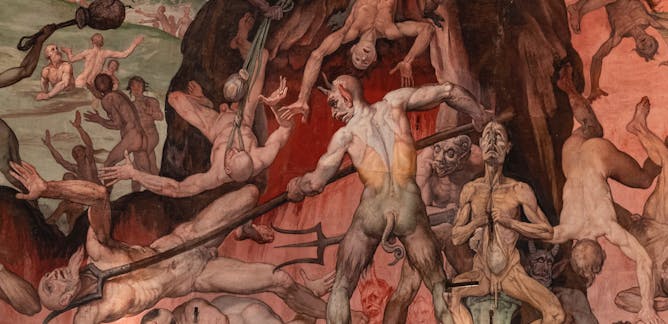
S. Jonathon O'Donnell, University College Dublin
How some evangelicals use spiritual warfare to interpret the presidency of Donald Trump.
| |
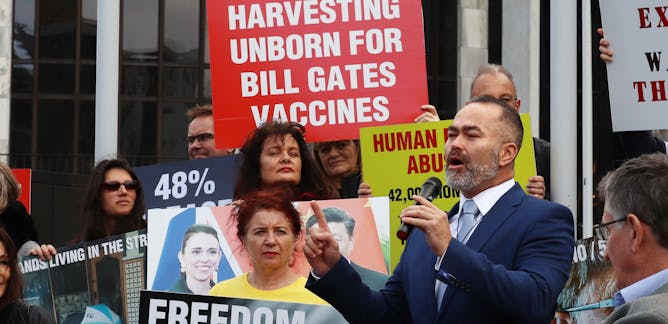
Alexander Gillespie, University of Waikato
Using the law - or changing it - to stop the spread of dangerous disinformation should be a last resort.
|
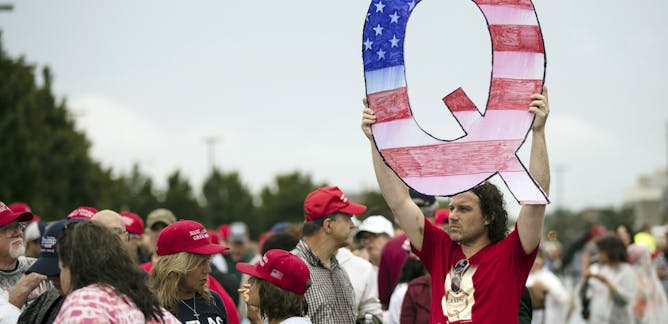
Audrey Courty, Griffith University
QAnon conspiracists think Trump's 'secret war' against an elite celebrity 'deep state' network will eventually lead to a day of reckoning where his opponents will fall.
| |
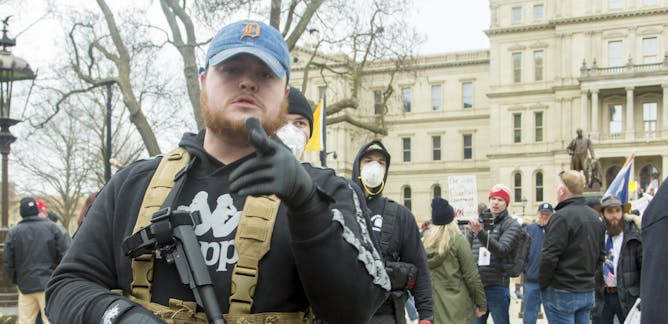
Blyth Crawford, King's College London
Extremists are playing on people's health fears to normalise their views.
|
|
|